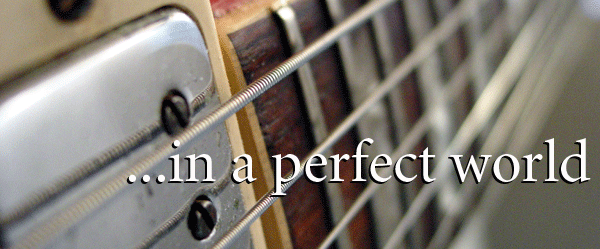 |
| Jimmy Bryant and Speedy West |
These were some of my first guitar heroes. Bryant was a ferociously talented guitarist, and West was a wild man on the pedal steel guitar. On the song "Stratosphere Boogie," the pair played blistering unison lines and traded solos unlike anything I've heard before or since. Bryant was a study in speed and precision, while West was a showman, fond of big volume swells, flashy runs and occasionally crashing his steel bar into the strings before sliding into dramatic swoops and dives across the instrument. The duo complimented each other magnificently.
From Speed Demons of the West
Rubber City Review
November 03, 2009:
While Bryant was playing in local dives, West was gaining notice among the city’s great western swing bands – and he eventually joined a 23-piece outfit led by Spade Cooley. Already an established name, West met Bryant at one of L.A.’s skid-row music joints in 1948. The two quickly formed a mutual admiration society and began a musical partnership that reached its peak in the studios of L.A.-based Capitol Records.
Given West’s near-reckless approach to the pedal steel guitar, it shouldn’t come as a surprise that he recorded with the king of the novelty music craze in the 1940s and early ‘50s, Spike Jones. But the instrumentals that Speedy cut with Jimmy Bryant from 1950 to 1956 on Capitol Records are far more sublime than ridiculous (for the most part) and are widely regarded as little works of art by some of today’s greatest pickers.
From Jimmy Bryant: faster guitar player resurfaces
By Jon Johnson, Country Standard Time
December 2003:
The recordings made by the West/Bryant team (which also usually included bassist Cliffie Stone, rhythm guitarist Billy Strange and drummer Roy Harte) were a groundbreaking mix of country and jazz; clearly influenced by western swing, but outpacing even the most radical recordings made by Bob Wills' Texas Playboys and Spade Cooley's Orchestra in the mid-'40s. West's wild volume swells and pedal tricks provided the perfect accompaniment to Bryant's precise, breakneck lead guitar work.
Although the West/Bryant instrumentals have been reissued on several releases since the mid-'90s, none of Bryant's original solo recordings had ever been reissued on CD until the release in late November of the 3-CD collection "Frettin' Fingers: The Lightning Guitar of Jimmy Bryant" on the Sundazed label.I was about 7 or 8 when I began listening to these singles, and it was an event for my kid self. I'd put the records on, climb onto my bed, and start bouncing and jumping around like a young maniac in time to the music. It was exhilarating. Even children can be moved by great music.
"He kept hearing about California," says Jimmy Bryant's sister, Lorene Bryant Epps, who is the author of the biography "Jimmy Bryant: Fastest Guitar in the Country." "He and Russell Hayden and Doug McGinnis (two other musicians with whom Bryant was playing at the time) went to California together in a '37 Ford, and they played (gigs) all the way there. And when he got there, I remember he said (he) was not disappointed. He loved it from the start. And it wasn't long after he got there that he met Speedy West."
West, about 25 when he and Bryant met when playing down the street from each other in separate bars, was already a first-call studio musician at Capitol in 1949 and was one of the first steel guitarists to make the switch to pedal steel guitar, which offered greater sonic possibilities than the earlier non-pedal models. Late in 1949, West began appearing on Cliffie Stone's weekly TV series "Hometown Jamboree," and following the departure of guitarist Charlie Aldrich the following year, Bryant soon joined him.

No comments:
Post a Comment